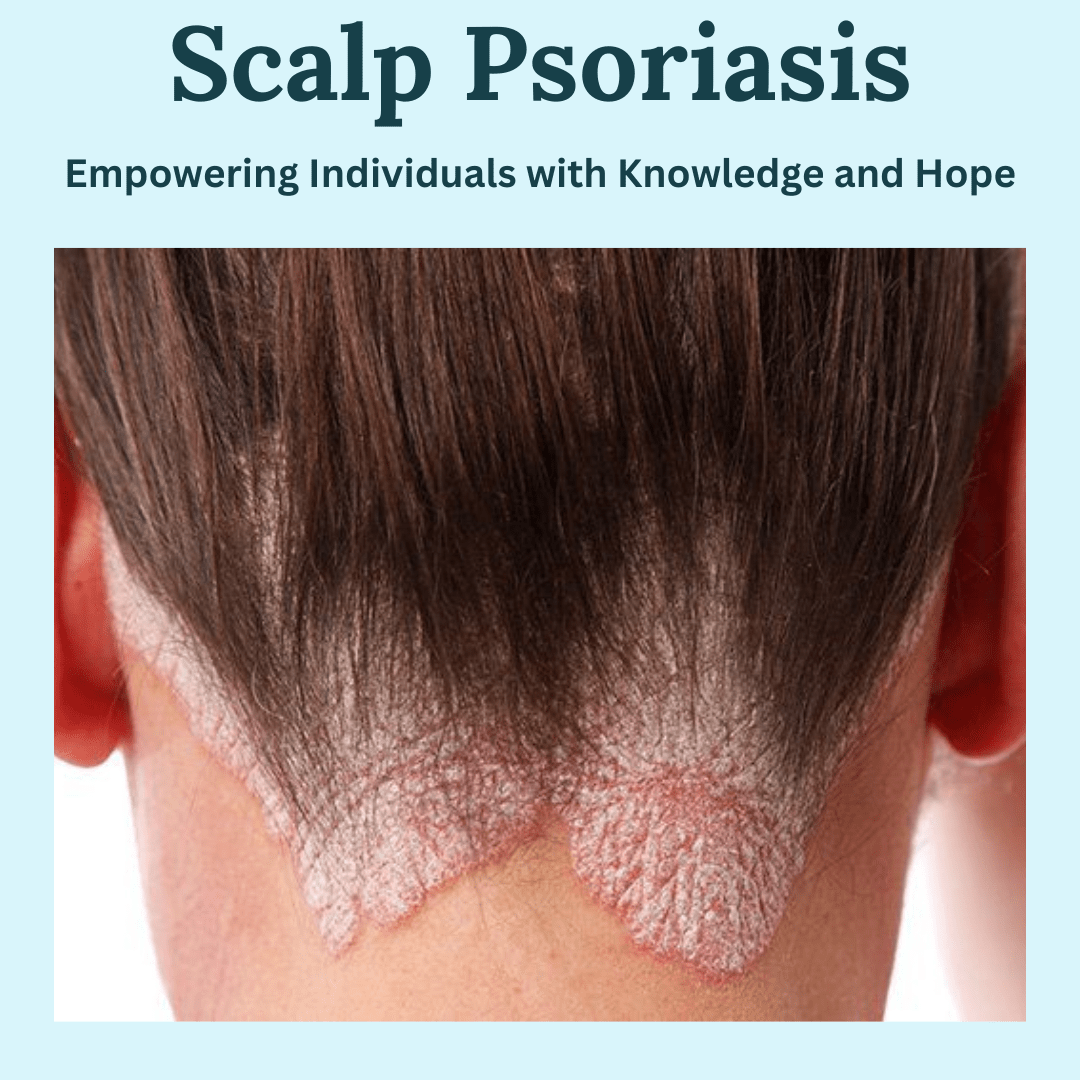Today, having naturally good looking skin in common, seems to belong to a bygone era. We know, hair and skin are prominent indicators of beauty, and regardless of gender, individuals prioritize their appearance. Even teenagers are initiating skincare and haircare routines early in their life. With many options available they can choose the best products suitable to their needs, enabling effective hair and skin care maintenance. However, not everyone is fortunate enough to have flawless skin or hair and enjoy a normal beauty care routine. There are some skin conditions that have no definite cure at all. One such Skin Condition is Psoriasis.
Psoriasis can manifest anywhere on the body, but commonly affects areas like the elbows, knees, and lower back. But today we are only going to talk about SCALP PSORIASIS which is particularly troublesome for a lot of people. Also, we will explore its causes and available treatment options. Stick till the end for invaluable insights into managing this challenging condition.
What is Scalp Psoriasis?
Scalp Psoriasis is a chronic skin condition characterized by redness, thickened skin, and silver scaling on the scalp. This condition is one of several unfortunate skin conditions individuals may experience. Its symptoms may include itching, discomfort, and sometimes even pain. It’s important to understand that Scalp Psoriasis is not a result of poor hygiene, nor is it contagious. Contrary to common misconceptions, it cannot be passed from person to person. Understanding its nature and dispelling myths surrounding it are crucial steps in managing this condition effectively.
What causes scalp Psoriasis?
Scalp Psoriasis stems from an irregular skin production cycle, wherein the skin’s turnover rate is significantly accelerated. While it typically takes three to four weeks for the skin to renew itself in healthy individuals, those with psoriasis experience this process within a mere three to seven days. Consequently, the rapid turnover leads to the buildup and thickening of skin on the scalp, resulting in its characteristic scaly appearance.
The exact cause of psoriasis remains undiscovered, though it’s classified as an autoimmune condition. Here, the immune system mistakenly attacks healthy skin cells, triggering inflammation and the formation of psoriatic plaques. Despite ongoing research, the precise triggers for this autoimmune response remain unidentified.
The Cycle of Scalp Psoriasis
Psoriasis can disappear anytime and come back on its own, with periods of remission followed by flare-ups of heightened activity. During flare-ups, symptoms such as intense itching, flakiness, and thickening become more pronounced, leading to what’s termed as “flared-up scalp psoriasis.” In severe cases, this flare-up may even result in hair loss due to the compromised environment for hair follicles.
However, it’s important to note that hair loss associated with scalp psoriasis is often temporary, with the hair growth cycle typically resumes once the condition is brought under control through appropriate treatment measures.
General Advices that someone with Psoriasis can follow
- Manage Stress: Since stress can worsen psoriasis symptoms, it’s crucial to identify and avoid stressful situations in your life.
- Quit Smoking: Smoking has been found to worsen psoriasis, so quitting smoking can significantly improve your condition.
- Maintain a Healthy Diet: A balanced and nutritious diet is essential for managing scalp psoriasis and promoting overall health.
- Limit Intake: consumption can impede the healing process and aggravate psoriasis symptoms, so it’s best to minimize or avoid altogether.
- Maintain a Healthy Weight: Obesity is associated with increased severity and frequency of psoriasis flare-ups, so maintaining a healthy body weight through proper diet and exercise is important for managing the condition effectively
Scalp Psoriasis Treatment Options
- Topical Treatment – Ointments, lotions, and creams are applied directly to the scalp to alleviate symptoms.
- Moisturizers: Consult a healthcare professional for recommendations on effective moisturizers. Moisturizing the scalp is crucial, especially if it’s damaged, to retain moisture. Massage the moisturizer deep into the scalp for better absorption.
- Steroids: These can reduce inflammation and slow down skin cell turnover. However, prolonged use can cause thinning of the skin. Follow your doctor’s instructions carefully to avoid complications. Never overuse it as this can cause severe issues as well. A healthcare professional’s involvement is always better while using steroids.
- Coal Tar Preparation: Where there is a real thickening and scaling on the scalp, a coal tar can be used to break down that flakiness and dead skin on the top. However, it may excessively dry the scalp and leave behind a residual odor. It’s typically used alongside other treatments under professional guidance.
- Vitamin D Analogs: Available as tablets, ointments, and lotions, these help reduce inflammation and regulate skin cell turnover when applied to the scalp.
- Calcineurin Inhibitors: These topical medications, often prescribed by specialists, are not usually the first line of treatment but can be effective in managing symptoms.
- Phototherapy: UV light exposure can aid in managing psoriasis symptoms by reducing inflammation and promoting healing.
- Systemic Treatments: Capsules, tablets, and oral medications, including injections, are taken to address symptoms that affect the entire body. These treatments work internally to manage psoriasis effectively.
Conclusion
In conclusion, managing scalp psoriasis requires understanding, perseverance, and proper treatment. By following general advice, such as stress management, quitting smoking, maintaining a healthy diet, and seeking professional care, individuals can effectively alleviate symptoms and improve their quality of life. With various treatment options available, including topical treatments, moisturizers, and systemic therapies, relief is possible. Remember, while scalp psoriasis may have its challenges, there is hope for a brighter tomorrow with proactive self-care and support from healthcare professionals and loved ones.

As the editor of the blog, She curate insightful content that sparks curiosity and fosters learning. With a passion for storytelling and a keen eye for detail, she strive to bring diverse perspectives and engaging narratives to readers, ensuring every piece informs, inspires, and enriches.










